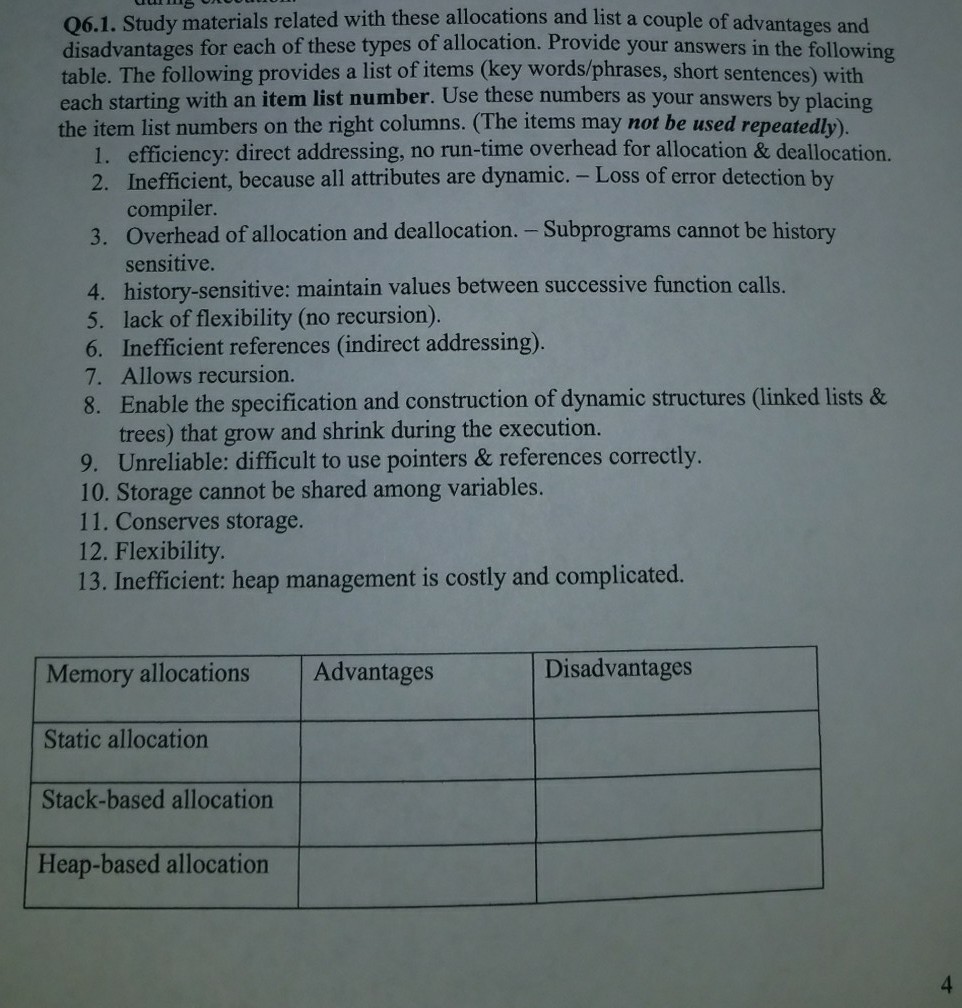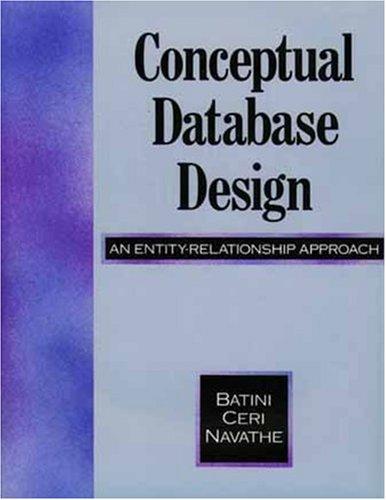Answered step by step
Verified Expert Solution
Question
1 Approved Answer
Q6.1. Study materials related with these allocations and list a couple of advantages and disadvantages for each of these types of allocation. Provide your answers

Q6.1. Study materials related with these allocations and list a couple of advantages and disadvantages for each of these types of allocation. Provide your answers in the following table. The following provides a list of items (key words/phrases, short sentences) with each starting with an item list number. Use these numbers as your answers by placing the item list numbers on the right columns. (The items may not be used repeatedly). 1. efficiency: direct addressing, no run-time overhead for allocation & deallocation. 2. Inefficient, because all attributes are dynamic. - Loss of error detection by compiler. 3. Overhead of allocation and deallocation. - Subprograms cannot be history sensitive. 4. history-sensitive: maintain values between successive function calls. 5. lack of flexibility (no recursion). 6. Inefficient references (indirect addressing). 7. Allows recursion. 8. Enable the specification and construction of dynamic structures (linked lists & trees) that grow and shrink during the execution. 9. Unreliable: difficult to use pointers & references correctly. 10. Storage cannot be shared among variables. 11. Conserves storage. 12. Flexibility. 13. Inefficient: heap management is costly and complicated. Advantages Disadvantages Memory allocations Static allocation Stack-based allocation Heap-based allocation 4
Step by Step Solution
There are 3 Steps involved in it
Step: 1

Get Instant Access to Expert-Tailored Solutions
See step-by-step solutions with expert insights and AI powered tools for academic success
Step: 2

Step: 3

Ace Your Homework with AI
Get the answers you need in no time with our AI-driven, step-by-step assistance
Get Started


